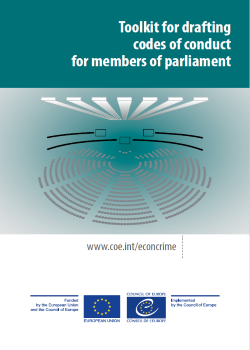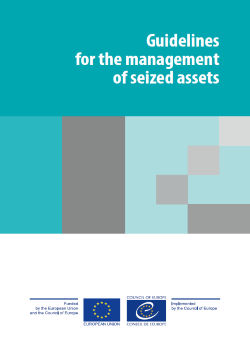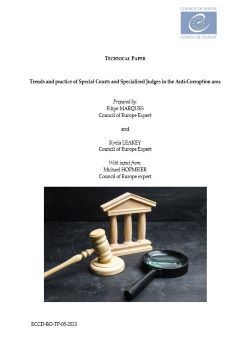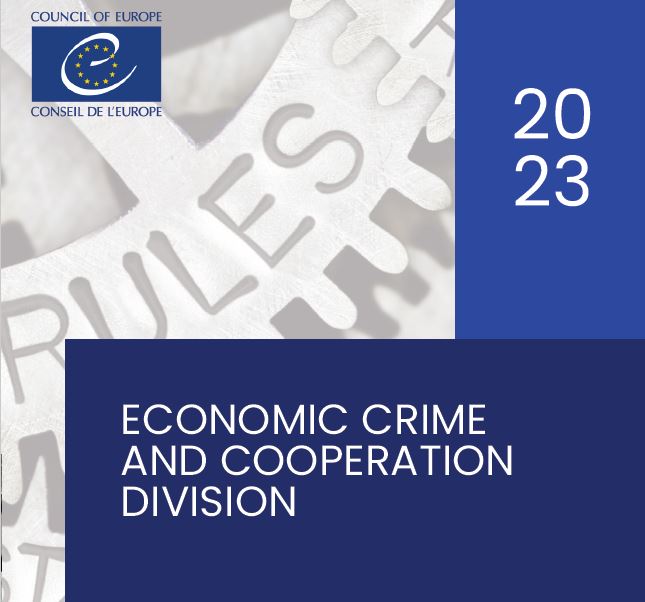The Joint Council of Europe and European Union Technical Support Instrument (TSI) initiative “Development of Financial Intelligence Unit’s expertise focused on digital finance and virtual assets” has been officially kicked-out on 29 February 2024 through the organisation of the workshop “Digital finance and related money laundering and terrorist financing risks: emerging needs and challenges for Financial Intelligence Units”.
The event was organised in cooperation with the European Commission Directorate General for Structural Reform Support (DG REFORM) and the French Financial Intelligence Unit (FIU) – Tracfin and it aimed at providing a platform for discussing current trends, needs and challenges of various European FIUs in terms of capacities and capabilities required for addressing risks related to virtual assets, non-fungible tokens (NFTs), as well as decentralised finance (DeFi) products and services.
In this regard, the event gathered Tracfin representatives, as well as representatives of Financial Intelligence Units from six European jurisdictions such as Belgium, Germany, Ireland, Malta, Norway and Spain. Participants had the opportunity to learn more about the latest developments in the Decentralised Finance (DeFi) ecosystem – as regards decentralised applications and smart contracts, crypto mixers and cross-chain bridges, stablecoins and NFTs – and reflect on their exposure to money laundering and terrorist financing (ML/TF) risks. Recent ML/TF cases involving virtual assets were also presented and discussed.
In addition, representatives of the seven FIUs provided comprehensive presentations regarding the emerging challenges observed in their jurisdictions in the area of virtual assets and decentralised finance, as well as the approaches taken by their institutions in addressing virtual assets and DeFi-related risks. Participants shared for instance information regarding the identified typologies and illustrated those with sanitised case examples.
The workshop also allowed to present the results of a comparative analysis undertaken by the Council of Europe which looked into the European FIU’s needs and challenges in terms of capacities required for addressing risks related to virtual assets, NFTs, as well as DeFi products and services. The analysis brought up a number of interesting trends and issues such as the anonymity of crypto addresses and the heavy reliance on commercial (third party) blockchain analytical tools.
The event served therefore to further enrich the content of the comparative analysis, as well as set the ground for the various capacity-building activities for Tracfin employees, to be carried out within the framework of the project.
The activity was organised within the framework of the Technical Support Instrument (TSI) project on “Development of Financial Intelligence Unit’s expertise focused on digital finance and virtual assets”, funded by the European Union and the Council of Europe, and implemented by the Council of Europe.
Welcome to the Economic Crime and Cooperation Division
The Economic Crime Cooperation Division (ECCD) is responsible for the Council of Europe’s cooperation and technical assistance related activities concerning measures against corruption, money laundering and terrorist financing. The ECCD has been supporting countries in the implementation of Council of Europe’s and other international anti-corruption and anti-money laundering standards for two decades now.
The Division’s activities comprise a wide variety of interventions focusing on implementation of international standards addressing recommendations provided by monitoring bodies such as GRECO and MONEYVAL (FATF or other FSRBs when applicable).
Through its interventions the Division supports the beneficiary jurisdictions in:
- Enhancing their legislative and strengthening of the institutional frameworks to fight corruption, money laundering and terrorist financing as well as on other matters relating to fight against economic crime;
- Developing policies and strategic documents;
- Strengthening of capacities of state institutions, specialised anti-corruption and anti-money laundering bodies, law enforcement, prosecution services and the judiciary.
To date the Division has implemented technical assistance interventions and supported reform processes in over 25 jurisdictions including CoE member states, EU member states, and non-member states and jurisdictions.
Multi-country exchange on Financial Intelligence Units’ needs and challenges in the area of decentralised finance and virtual assets
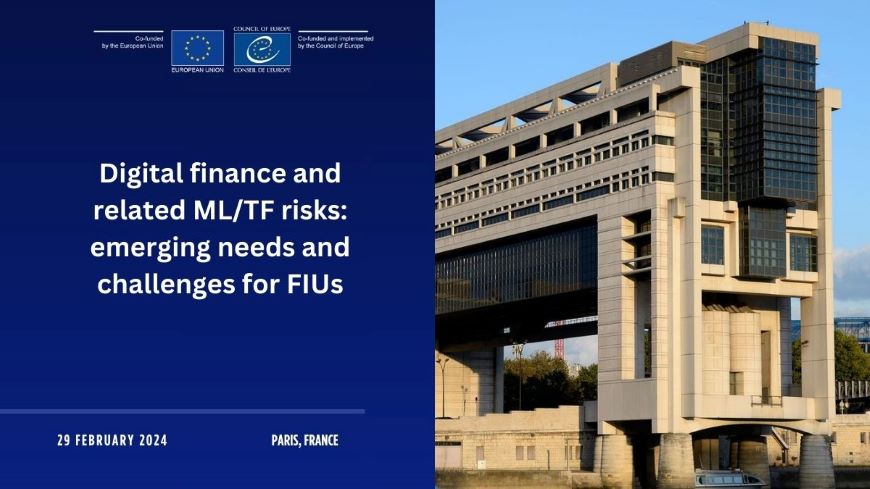
- Diminuer la taille du texte
- Augmenter la taille du texte
- Imprimer la page



